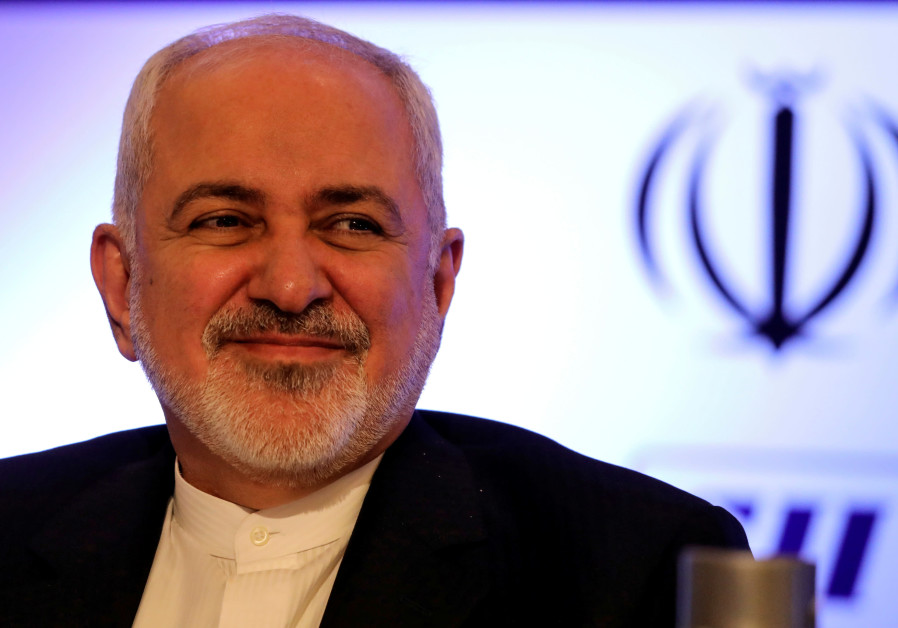Iran dismisses possibility of conflict, says does not want war

Iran’s Foreign Minister Mohammad Javad Zarif attends India-Iran business forum in New Delhi, India, January 8, 2019.. (photo credit: REUTERS/ANUSHREE FADNAVIS)
Iran’s top diplomat on Saturday dismissed the possibility of war erupting in the region, saying Tehran did not want a conflict and that no country had the “illusion it can confront Iran,” the state news agency IRNA reported.
Tensions between Washington and Tehran have increased in recent days, raising concerns about a potential US-Iran conflict. Earlier this week the United States pulled some diplomatic staff from its Baghdad embassy following attacks on oil tankers in the Gulf.
“There will be no war because neither do we want a war, nor has anyone the idea or illusion it can confront Iran in the region,” Foreign Minister Mohammad Javad Zarif told IRNA before ending a visit to Beijing.
President Donald Trump has bolstered economic sanctions and built up US military presence in the region, accusing Iran of threats to US troops and interests. Tehran has described those steps as “psychological warfare” and a “political game.”
“The fact is that Trump has officially said and reiterated again that he does not want a war, but people around him are pushing for war on the pretext that they want to make America stronger against Iran,” Zarif said.
He told Reuters last month that Trump could be lured into a conflict by the likes of US national security adviser John Bolton, an ardent Iran hawk.
REGIONAL TENSIONS
In a sign of the heightened tension across the region, Exxon Mobil evacuated foreign staff from an oilfield in neighboring Iraq after days of saber rattling between Washington and Tehran.
Elsewhere in the Gulf, Bahrain warned its citizens against traveling to Iraq or Iran due to “unstable conditions.”
In Washington, officials urged US commercial airliners flying over the waters of the Gulf and the Gulf of Oman to exercise caution.
A Norwegian insurers’ report seen by Reuters said Iran’s elite Revolutionary Guards were “highly likely” to have facilitated the attacks last Sunday on four tankers including two Saudi ships off Fujairah in the United Arab Emirates.
In Tehran, the commander of the Revolutionary Guards named a new head of the force’s intelligence unit on Saturday, the Fars news agency reported.
Iranian officials have denied involvement in the tanker attacks, saying Tehran’s enemies carried them out to lay the groundwork for war against Iran.
US officials, however, are concerned that Tehran may have passed naval combat expertise onto proxy forces in the region.
Following the re-imposition of US sanctions, a senior Iranian maritime official said Iran had adopted new tactics and new destinations in shipping its oil exports.
Iranian crude oil exports have fallen in May to 500,000 barrels per day or lower, according to tanker data and industry sources, after the United States tightened the screws on Iran’s main source of income.
Join Jerusalem Post Premium Plus now for just $5 and upgrade your experience with an ads-free website and exclusive content. Click here>>






Comments are closed.